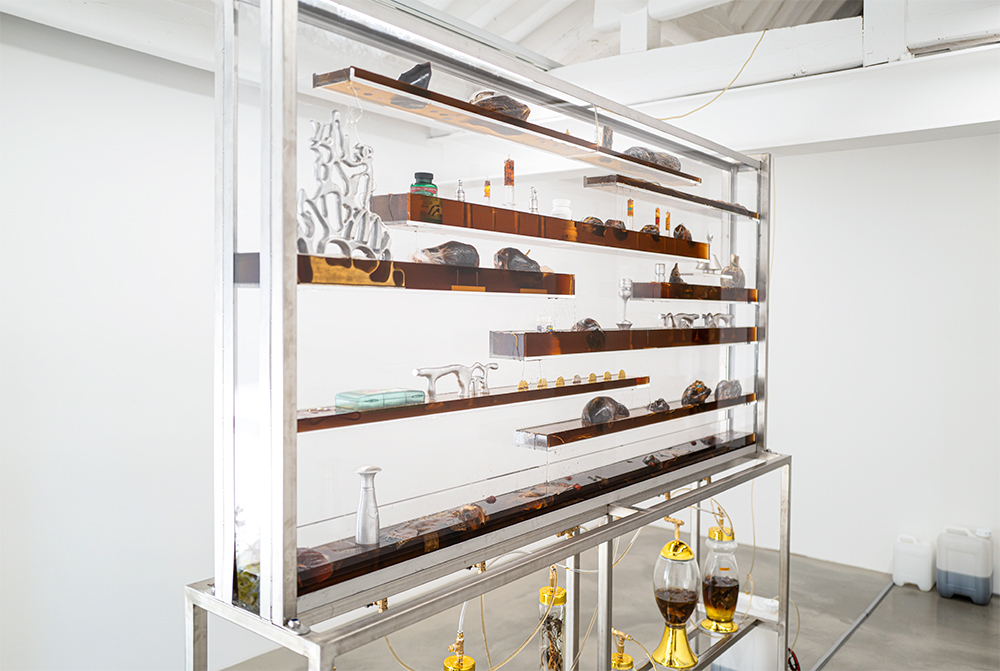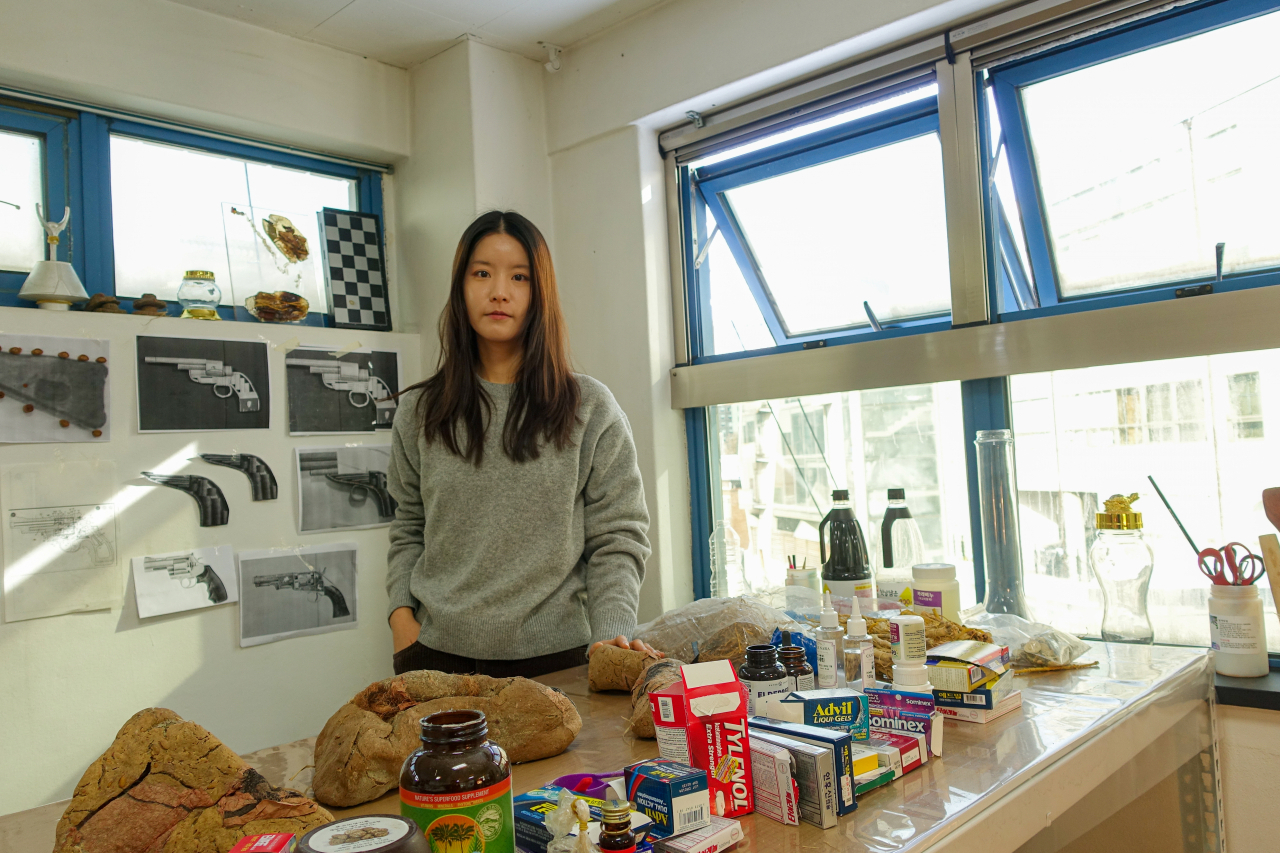 |
An installation view of "The Oriental Sauce Factory" at Gallery Shilla in Seoul (courtesy of the gallery) |
The smell of soy sauce and fermented soybeans fill Gallery Shilla in Seoul, where “The Liquid Filling Machine” -- an installation by artist Yoo Hae-na -- is on show. The pungent smell will perplex visitors unfamiliar with Yoo's art -- are they at a gallery or a food factory?
Inside the installation are cheap and readily available industrial materials and logos of multinational corporations with dark colored sauce, along with growing mold. On the wall is “meju,” bricks of dried fermented soybeans that are used to make soybean paste and soy sauce.
“When I was little, the soy sauce factory seemed like an amusement park with all the machines producing soy sauce and packages,” said the 33-year-old Yoo in an interview with The Korea Herald on Dec. 12 at Gallery Shilla, where her solo exhibition “The Oriental Sauce Factory” is currently showing.
 |
Artist Yoo Hae-na (courtesy of the artist) |
Born in Seoul, Yoo grew up watching her father run a soy sauce factory in Eumseong, a small county in North Chungcheong Province.
“Soy sauce’s unique smell – sort of sweet -- stung my nose at the factory, but soon I got used to the smell, which was an interesting experience.”
From 2013 to 2019, Yoo lived in the US and her return to Korea coincided with the pandemic outbreak. Media coverage showed how the pandemic and lockdowns fueled anti-Asian sentiment in western countries, something that struck Yoo as an artist. The yearslong pandemic and her experiences in a foreign country inspired her.
 |
"Meju (Dictee)" by Yoo Hae-na (Park Yuna/The Korea Herald) |
She dared to fill the gallery with the smell of soy sauce and meju, not interested in creating “pretty” artworks that would be popular at art fairs or at auctions. Yoo talked about her belief and commitment as an artist calmly, looking determined.
She raises a question about the term “Oriental,” which is still used widely for grocery products or perfume though it is considered a discriminatory term. Yoo was exposed to the word in the states, including a salad dressing referred to as “Oriental sauce.”
“So I was quite familiar with the term and aware that it refers to Asians like me, but was not really sure what ‘Oriental’ actually meant, except that it was rooted in the concept of imperialism. I want visitors to experience the impenetrability and ambiguity of the word (with smell),” Yoo said.
 |
"Gun Series" by Yoo Hae-na (Gallery Shilla) |
She had an exhibition at Murmurs Gallery in Los Angeles in 2021 with the same title. The artwork “Meju (Dictee),” which shows bricks of meju, was created following the actual method of making meju. She mixed soybeans with texts from the book “Dictee” by Korean female avant-garde artist Cha Hak-kyung (1951-1982), which was printed on hanji, or traditional mulberry paper.
At Gallery Shilla, she is also showing new works. “Gun Series” is a collection of rifles created with hanji, soaked in soy sauce and then dried. The hanji rifles show newspaper headlines about the ongoing Russia-Ukraine War. The series evolved from her previous gun series that featured news headlines about hate crimes against Asians during the pandemic.
“Smell is invisible, but I wanted to use it (for art). You can’t see it, but it is very powerful. It lasts in one’s memory for a long time, and is almost unforgettable,” Yoo said.
The exhibition runs through Saturday.
By Park Yuna (yunapark@heraldcorp.com)






![[Today’s K-pop] Blackpink’s Jennie, Lisa invited to Coachella as solo acts](http://res.heraldm.com/phpwas/restmb_idxmake.php?idx=644&simg=/content/image/2024/11/21/20241121050099_0.jpg)
